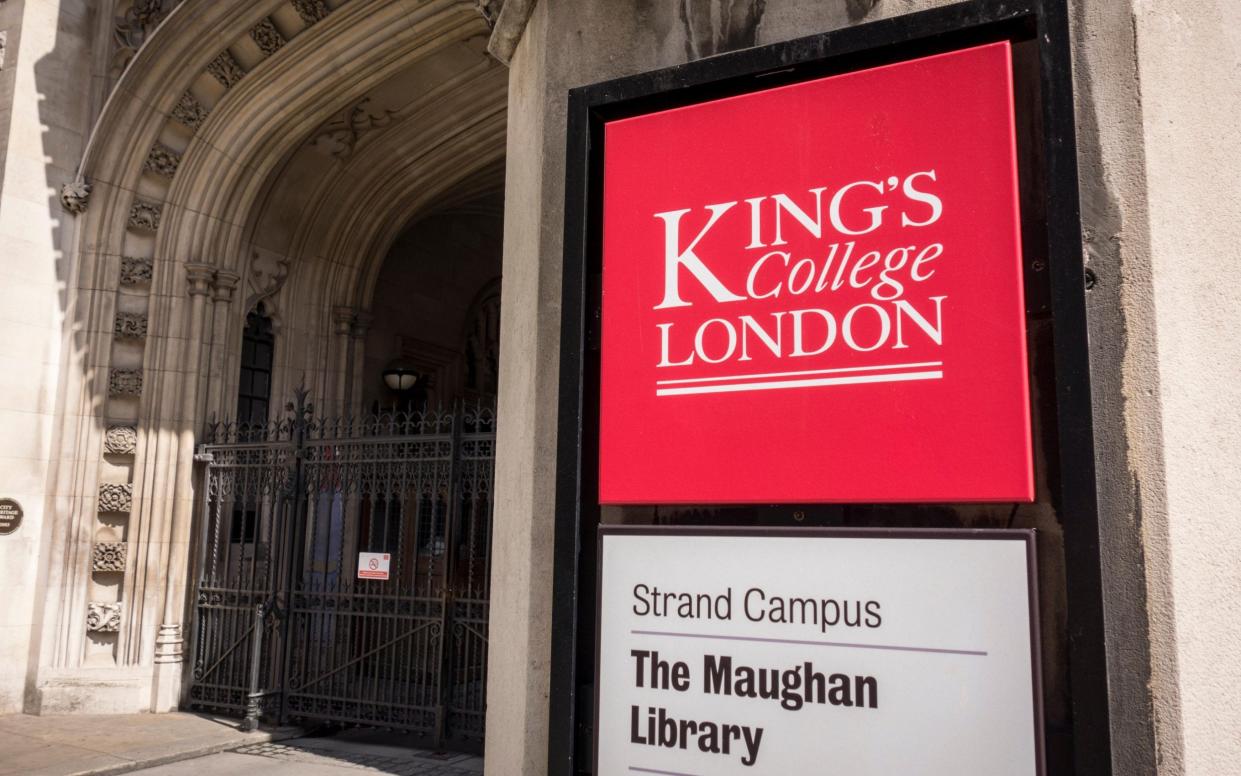University’s trans policy may be unlawful

A major London university may have broken equality law by barring staff from promotion unless they support its pro-trans diversity policy.
A barrister has found that King’s College is potentially discriminatory against those who believe there are only two sexes and that trans people are not the gender they identify as.
It could also fall foul of new rules to come into force in August to protect free speech in universities.
King’s College told staff they cannot be promoted unless they sign up to the whole of the university’s “equality, diversity and inclusion ambitions”.
The policy states that staff members should provide evidence of what they have done to promote inclusion, such as taking part in activity run by Stonewall, the charity that has recently come under fire for its support of puberty blockers.
Dr John Armstrong, a reader in financial mathematics at the college, approached the gender-critical group Sex Matters to ask whether the rule was lawful. It asked a barrister to look at the case, and she found it was potentially in breach of the Equality Act and the Employment Act.
Policies similar to Stonewall’s
The legal opinion, by Akua Reindorf, found that King’s College’s “various policies, training materials and guidance relating to the protected characteristics of sex and gender reassignment are incorrect, as a matter of law, in several substantial respects”.
It found that the college’s policies were very similar to those of Stonewall, which “promote the gender identity belief”.
“I think it is strongly arguable that KCL’s approach to EDI in respect of sex and gender conflicts with and/or actively contradicts the law in certain key respects, and that it is partisan and ideological in nature,” the barrister said.
“It seems to me that the requirement to demonstrate allegiance to the EDI ambitions as a criterion for advancement places those with gender critical beliefs at a particular disadvantage when compared to others.”
The legal advice also found that the university was concentrating on improving its rankings on a Stonewall charter mark scheme.
Dr Armstrong raised his concerns about the university’s EDI policy in 2022, but nothing happened. He has since had a meeting with the university’s human resources director.

Helen Joyce, director of advocacy at Sex Matters, said: “The damning conclusions of this legal opinion mean that King’s College London must urgently review its promotion and hiring policies.
“A university that forces staff and applicants to support positions shaped by lobby groups that misrepresent laws relating to discrimination will be vulnerable to legal challenge in the employment tribunal.
“Several high-profile recent cases, like the successful case taken by criminologist Jo Phoenix against the Open University, show that this can be a very expensive mistake.
“Any university that imposes policies that run counter to academic freedom is failing in its core mission, and likely to be penalised by the Office for Students under new laws coming into force in August.”
She added: “Ideological capture by trans lobby groups has no place in higher education.
“Universities need to return to their fundamental principles, recognising that diversity of thought is essential in a pluralistic, liberal society.”
‘Law isn’t as woke as they’d like’
Toby Young, general secretary of the Free Speech Union, said: “At the Free Speech Union, we are constantly having to remind universities that their understanding of equality law is based on poor advice from activist organisations and the Equality Act does not, in fact, impose a legal obligation on them to enforce gender identity ideology or critical race theory.
“When this first started happening, I gave organisations like Stonewall the benefit of the doubt, assuming that the lawyers they employed just weren’t very good. But I now suspect that they are deliberately misrepresenting equality law in an effort to persuade universities – and not just universities – that any departure from their ideological agenda is unlawful.
“The truth is, the law just isn’t as woke as they’d like it to be.”
A King’s College London spokesman said: “We’re proud of the work we’ve done to build an inclusive atmosphere on campus in collaboration with our staff networks and EDI [equality, diversity and inclusion] experts.
“Academic staff applying for promotion choose how they provide evidence to support their individual applications against a range of specific criteria, in line with employment and higher education regulations. We regularly review all university policies to ensure compliance with changing laws.”

 Yahoo News
Yahoo News 
